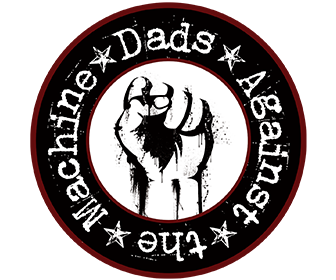In the age of political correctness, one topic remains stubbornly taboo: the catastrophic impact of single-mother households on children. The truth is stark, unyielding, and backed by mountains of data—children raised by single mothers are at a profound disadvantage compared to those raised by single fathers or in two-parent households. This isn’t a matter of opinion; it’s a cold, hard fact that society refuses to face. The time has come to rip off the blinders and confront the grim reality that single-mother households are breeding grounds for failure, dysfunction, and tragedy.
A Grim Statistical Landscape
The statistics are not just alarming; they are damning. Children raised in single-mother households are five times more likely to commit suicide, nine times more likely to drop out of high school, ten times more likely to abuse chemical substances, 14 times more likely to commit rape, 20 times more likely to end up in prison, and 32 times more likely to run away from home compared to their peers in two-parent families or single-father households. These numbers are not anomalies—they are consistent across multiple studies and represent a tragic reality for millions of children.
But the litany of horrors does not end there. Single-mother households account for a staggering 70% of all teen pregnancies and 70% of all child murders. Even more chilling, these households are responsible for the majority of filicide cases, where children are killed by their own parents. It’s time to stop sugarcoating the truth: a child living in a single-mother household is more likely to be murdered by their parent than in any other household structure. And no, the stepfather is not the main culprit. Studies have found that stepparents are no more likely to kill children than their biological counterparts. The cold, hard truth is that single mothers are, on average, the most likely to kill their own children.
The Devastating Role of Absent Fathers
One of the most glaring issues in single-mother households is the absence of a father figure. The importance of a strong, positive male role model in a child’s life cannot be overstated. Yet, single mothers consistently fail to provide this crucial influence. Whether it’s due to the breakdown of a relationship, poor choices in partners, or societal structures that enable absentee fatherhood, the result is the same—children are left to navigate life without the guidance and discipline that a father provides.
Boys, in particular, suffer immensely from the absence of a father. Without a strong male role model, they are more likely to seek out toxic masculinity in gangs or criminal activities. The data is irrefutable: fatherless boys are more likely to engage in violent crime, drop out of school, and end up incarcerated. The absence of a father leaves a void that single mothers simply cannot fill, no matter how hard they try.
The Mental Health Crisis Among Single Mothers
Let’s cut through the bullshit—single motherhood is a mental health disaster waiting to happen, and it’s not just the absence of a father that’s screwing up these kids. The mental state of the mother is a ticking time bomb, ready to blow up any chance those kids have at a stable life. Women are biologically predisposed to struggle more with mental health issues—depression, anxiety, stress—you name it. In fact, women are twice as likely as men to suffer from depression , and single mothers are even more screwed. According to studies, single parents are two to three times more likely than married mothers to seek help for psychiatric disorders, and single mothers are significantly more depressed than single fathers .
Now think about what that means for the kids. A household where mom is battling depression or anxiety isn’t just tough—it’s a breeding ground for disaster. Children in these environments are way more likely to develop emotional and behavioral problems, getting sucked into a vicious cycle of dysfunction that’s damn near impossible to break. The data doesn’t lie: children raised in single-mother households are at an increased risk for psychopathology . We’re talking about higher rates of depressive symptoms, externalizing disorders, and all sorts of behavioral issues. And here’s the kicker—single mothers are more likely to engage in psychologically controlling and rejecting parenting behaviors, which just makes everything worse. Girls, in particular, are more susceptible to depressive symptoms in these toxic environments, while boys aren’t far behind, picking up externalizing disorders that set them on a path to failure .
It’s no secret that single mothers are dealing with a mountain of shit—lower levels of wealth, more caregiving responsibilities, and zero backup when the going gets tough. About one-third of all mothers in the U.S. today are unmarried, and they’re experiencing high rates of psychological distress. This isn’t just some passing issue—it’s a full-blown crisis. These women are dragging their kids down with them into a pit of mental instability, poor parenting, and endless dysfunction.
So let’s stop pretending that single motherhood is some empowering choice. The reality is, it’s screwing over both the mothers and the kids, locking them into a life of psychological turmoil. The numbers are clear, and the outcomes are bleak. Single mothers aren’t just failing themselves—they’re dooming their children to repeat the same mistakes, all because of their own mental health struggles. If we’re going to talk about the impact of single motherhood, we need to start with the brutal truth: it’s a mental health crisis that’s wrecking lives.
The Romantic Disadvantage
Let’s not beat around the bush—single mothers are facing a losing battle in the dating world. It’s not just a minor setback; it’s a full-blown obstacle course. Men aren’t exactly lining up to date women who already have kids. Why? Because men don’t want to deal with the drama, the financial burden, or the emotional baggage that comes with raising someone else’s children. It’s not politically correct to say, but men are wired to seek out younger, childless women. That’s biology, plain and simple. Society might push the narrative that men should be stepping up, but the truth is most men see a single mom and think, “Why would I sign up for that?”
And here’s the kicker: as women age, their value on the dating market drops like a rock, especially if they’ve already got kids. Men aren’t racing against the clock the way women are—they know they’ve got time, and they’re using it to find a woman with less baggage. So where does that leave single mothers? If they do manage to find a guy, he’s often not the cream of the crop.
Let’s face it, the guys who are willing to take on the role of stepdad are often the ones who don’t have many options themselves. They’re not exactly high-quality catches. So now, instead of being alone, she’s stuck with a loser who might bring more problems than he solves. This guy isn’t stepping in to be a strong role model or a reliable partner. He’s probably just looking for a place to crash, maybe someone to bankroll his lifestyle, and he’s not adding anything positive to the kids’ lives. In fact, he might even make things worse, creating a shitty environment that the kids have to grow up in.
So not only is the single mom dealing with the stress and financial burden of raising kids on her own, but if she does find someone, there’s a good chance he’s not pulling his weight. This drags her down even further and screws up the kids’ lives too. They end up watching their mom struggle, maybe even get mistreated by this guy who isn’t worth the trouble, and that leaves lasting scars. The cycle of instability continues, and it’s the kids who suffer the most.
In the end, single mothers are often left picking up the pieces—alone or worse, with a guy who’s more of a burden than a partner. And the kids? They’re the ones caught in the crossfire, missing out on the stability and positive role models they need to grow up well — all because mom thought she could do better than Dad!
Hooked on Attention: The Social Media Thirst Trap Epidemic

In today’s world, where social media dominates, single mothers are more desperate than ever for validation and attention online. Instead of focusing on their kids or rebuilding their lives, many are obsessed with curating a fake image of themselves as “strong and independent” women. But let’s be honest—behind all the carefully crafted selfies and inspirational quotes, they’re just chasing the dopamine hits from likes, comments, and follows.
This relentless pursuit of online validation is doing more harm than good. Mental health issues such as depression, anxiety, body dysmorphic disorder, and eating disorders are more prevalent among women. In fact, anxiety is 23% higher for women than men, and depression is approximately 50% higher. When these single mothers spend hours glued to their phones seeking validation, it’s no surprise that they become mentally drained and emotionally unavailable for their kids. A study published in the Journal of Social and Clinical Psychology found that limiting social media use to just 30 minutes per day led to significant reductions in loneliness and depression. Now, imagine the toll on a woman who spends far more time than that each day seeking validation online.
But it doesn’t stop there. The CDC’s bi-annual Youth Risk Behavior Survey highlighted that 57% of teen girls now report persistent sadness or hopelessness, with 30% seriously considering suicide. These numbers have risen sharply over the past decade, coinciding with the increased use of social media. For single mothers, the risk is even more significant. A study published by PubMed Central underscores the link between excessive social media use and psychiatric disorders, showing that the risk of developing a mental health disorder is directly tied to the duration, frequency, and number of social media platforms used. These moms, caught up in feeding their egos online, are neglecting what should matter most: their children.
Research also indicates that parents heavily engaged in social media can become distracted, leading to reduced quality of interactions with their kids. A study from Pediatrics found that parents using mobile devices during meals were more likely to respond harshly to their children’s bids for attention. These mothers are so desperate to prove they’re thriving after a breakup or divorce that they end up destroying whatever was left of their family.
Even marriages crumble under the weight of this obsession. A study from the University of Missouri found that high levels of social media use correlate with increased jealousy and conflict in relationships, often leading to infidelity and divorce. Instead of working on their relationships or focusing on their kids, these women are posting thirst traps and oversharing about their personal lives, driving a deeper wedge between themselves and their families. The irony? The very platforms they turn to for validation are the ones helping to destroy their marriages and ruin their kids’ futures.
In the end, these single mothers are not just failing themselves—they’re failing their children, dragging them into a life of instability and dysfunction, all for a few likes on a screen.
The Legal System’s Role in Perpetuating the Cycle
One of the most egregious factors contributing to the prevalence of single-mother households is the legal system’s blatant bias in favor of mothers during custody battles. Despite overwhelming evidence that children fare better in single-father households, courts continue to award primary custody to mothers in the vast majority of cases. This outdated and misguided approach ignores the reality that fathers are often better equipped to provide a stable and nurturing environment for their children.
The legal system’s favoritism towards mothers is not just a disservice to fathers—it is a direct attack on the well-being of children. By consistently awarding custody to mothers, even when they are not the best option, the courts are condemning countless children to lives of instability, poverty, and dysfunction. It’s time for the legal system to recognize that fathers are not just secondary parents; in many cases, they are the superior choice for raising children.
The Final Verdict
The evidence is overwhelming and irrefutable: single-mother households are failing children on an epic scale. The absence of a father, combined with the mental health challenges faced by single mothers, creates a toxic environment that breeds failure, dysfunction, and tragedy. The legal system’s insistence on favoring mothers in custody battles only exacerbates the problem, perpetuating a cycle of disadvantage that condemns millions of children to a bleak future.
It’s time to face the facts and stop pretending that single-mother households are just another family structure. They are not. They are breeding grounds for some of the worst outcomes imaginable for children. The data doesn’t lie—children from single-mother households are at a significant disadvantage in almost every measurable way. If we truly care about the future of our children, we must start acknowledging the devastating impact of single-mother households and take steps to ensure that fathers are given the opportunity to play a more significant role in their children’s lives.
The time for sugarcoating and political correctness is over. The harsh reality is that single-mother households are failing children at an alarming rate, and the consequences are being felt across society. It’s time to confront these uncomfortable truths and take action to support fathers, reform the legal system, and ensure that every child has the opportunity to grow up in a stable, nurturing environment. The future of our children depends on it.



























